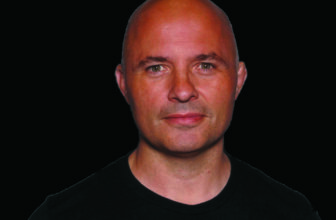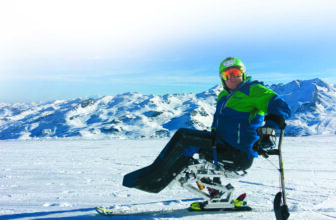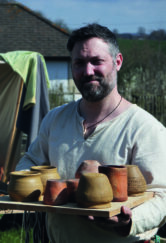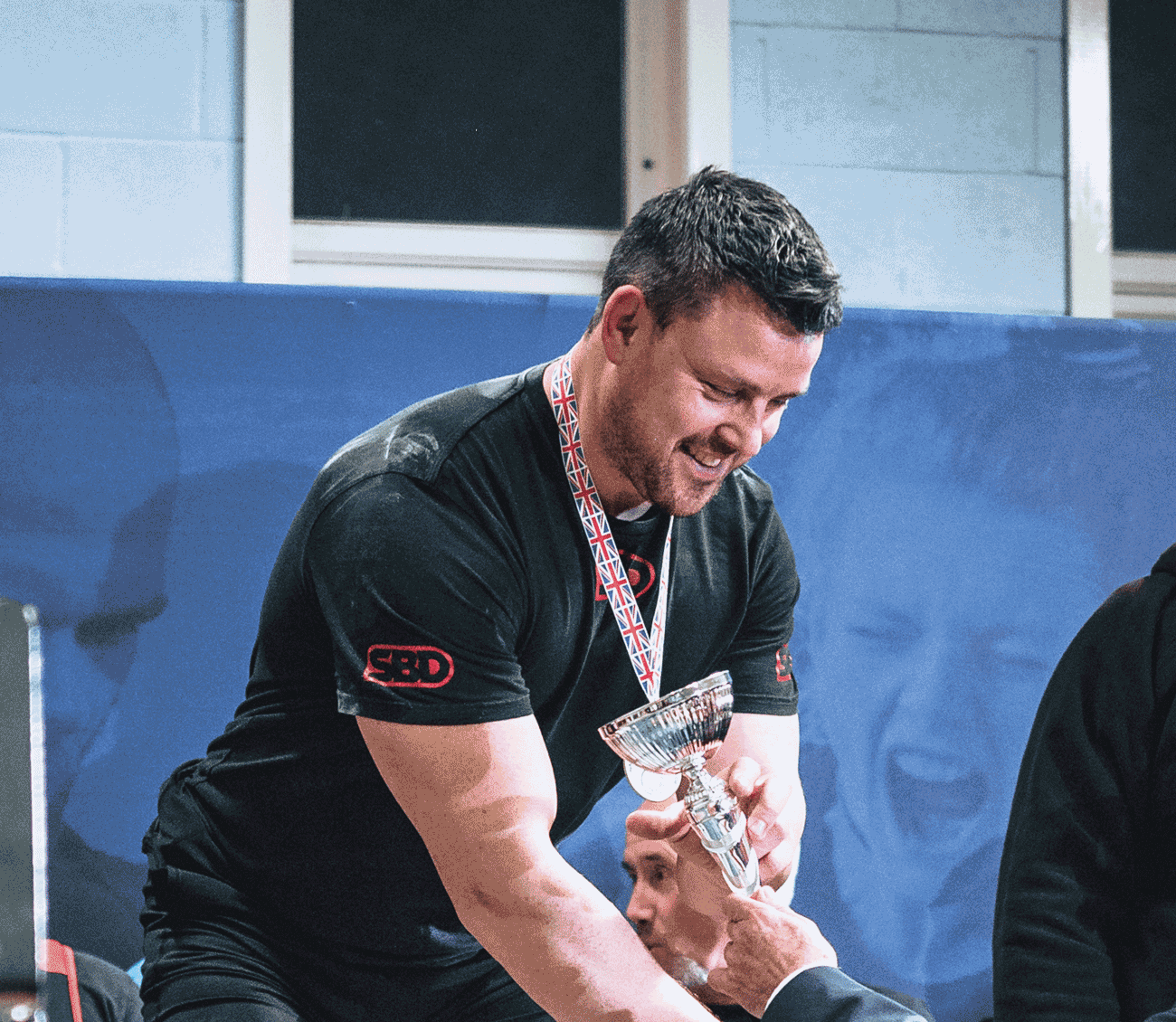
Ryan Dixon – Creative Director & Powerlifter
Cranleigh is, and always has been, our family home. My parents moved from London, and my dad, a former-policeman, was based in Woking, then Guildford before finally settling in Cranleigh during the 1970s. My older brother, sister and I grew up in Cranleigh, where I still live with my wife, children and wider family. I have an office in the village, from where I run my brand and design agency, Mad Keen.
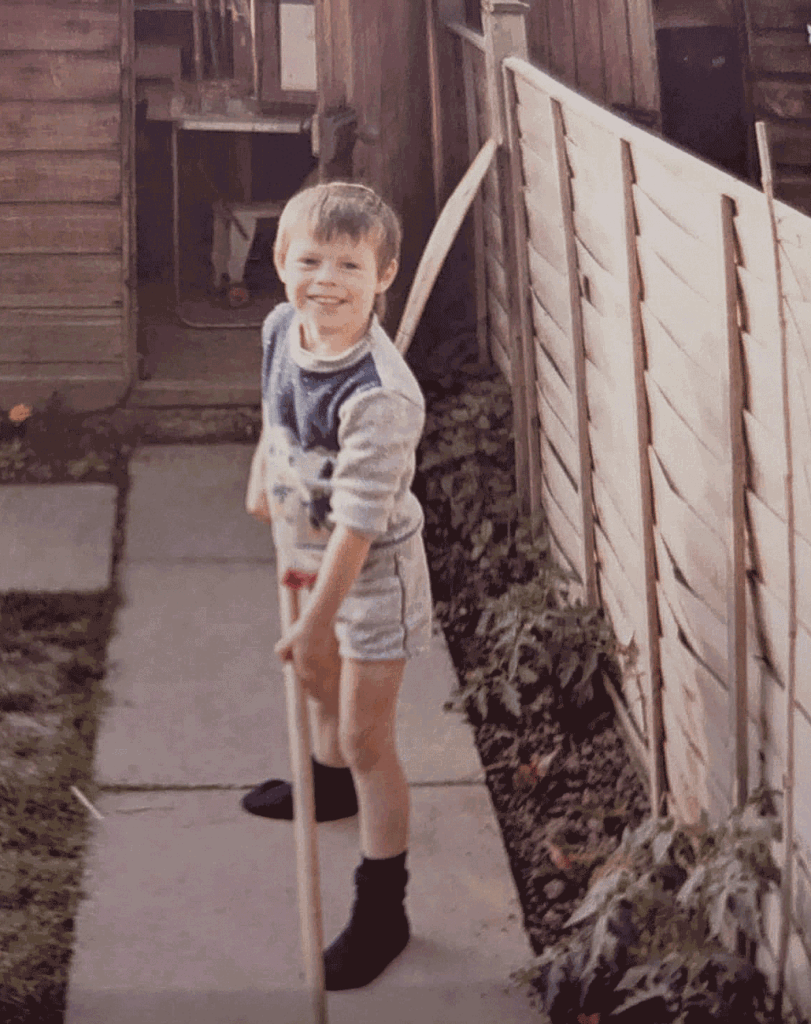
Park Mead primary school was across the road from our house. I’d roll out of bed at 8.30am and be at school by 8:45am! I really enjoyed it and have many fond memories. Although fairly innocent, I was a bit of a cheeky lad and my best friend and I would terrorise the playground, running around like lunatics. Frequently we’d end up facing the wall or having a ‘chat’ with the headmaster. Great memories!
After junior school I went onto Glebelands. Secondary school was quite a jump for me and although I wasn’t particularly academic I did well in English Literature, Language and DT. Subjects like Maths and Science didn’t connect with me particularly. I’ll never forget my science teacher, Mr Mundy, telling my Mum and Dad at parent’s evening “Put it this way, he’s not going to be a scientist”. Mr. Mundy, you weren’t wrong!
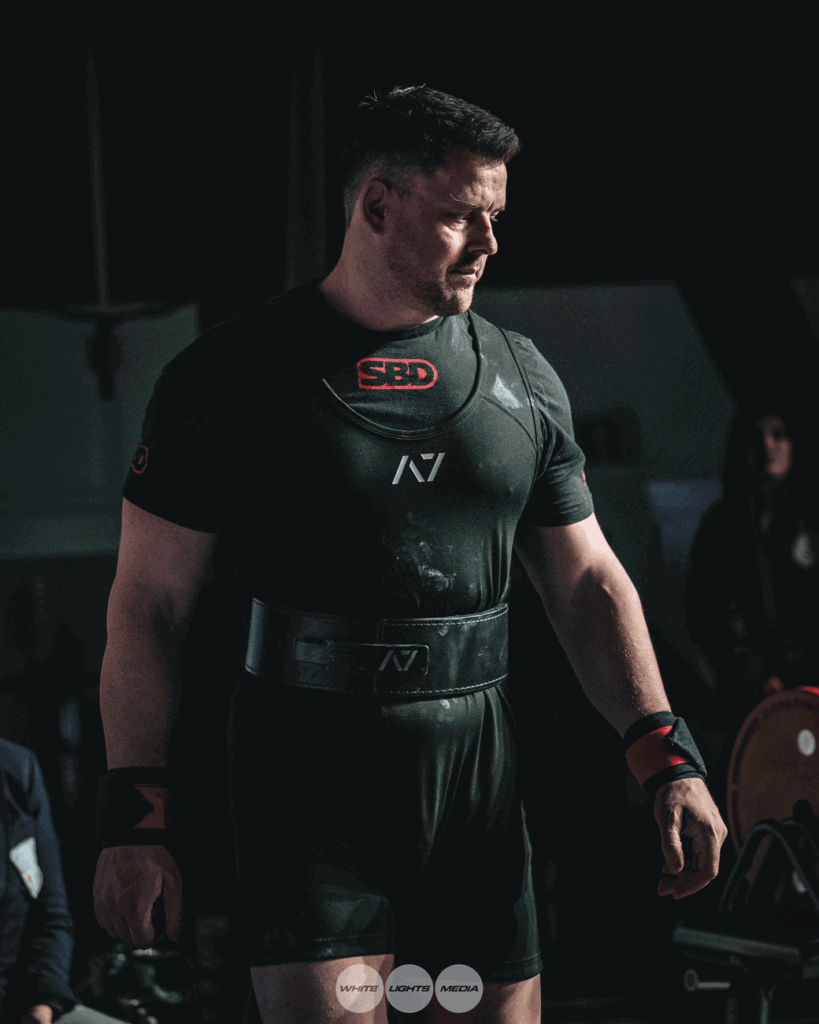
My true passion was design and Mr. Hobbs, my Design and Technology teacher was the one person I connected with at school. He was patient, considerate and had worked in the design industry, so could relay authentic experiences. He played a key role in steering me towards a career in graphic design. One memory that still amuses me is when I asked Mr. Hobbs to help me powder coat my mountain bike stem after school, to which he agreed. It was one of those “flexi-stems” that were all the rage in the 90s. My end of the bargain was to check the melting point of the nylon centre of the stem before we placed it in the school oven, prior to applying the powder. I may have got it wrong and I may have blinded us both for a few minutes once the oven doors opened and the melted nylon fumes filled the classroom! To be fair, we made a new nylon component on the lathe and the patience of Mr Hobbs was my ultimate lesson. The second influential figure at school was my history teacher, who coached the school rugby team. With my brother playing rugby and my dad too when he was younger, they suggested I give it a go. So I approached my teacher to which he replied, “You’re way too small to play rugby”. Though I was a keen mountain biker and played the drums in a band with friends, I still wanted to pursue rugby and his comments just served to spur me on. Years later, I locked eyes with him in the crowd during a First XV match at Guildford. He did a double take when he saw how much I’d grown and was playing a decent level of rugby! It’s ironic that his comments drove me to pursue rugby, where I played for Cranleigh, Guildford and Surrey.
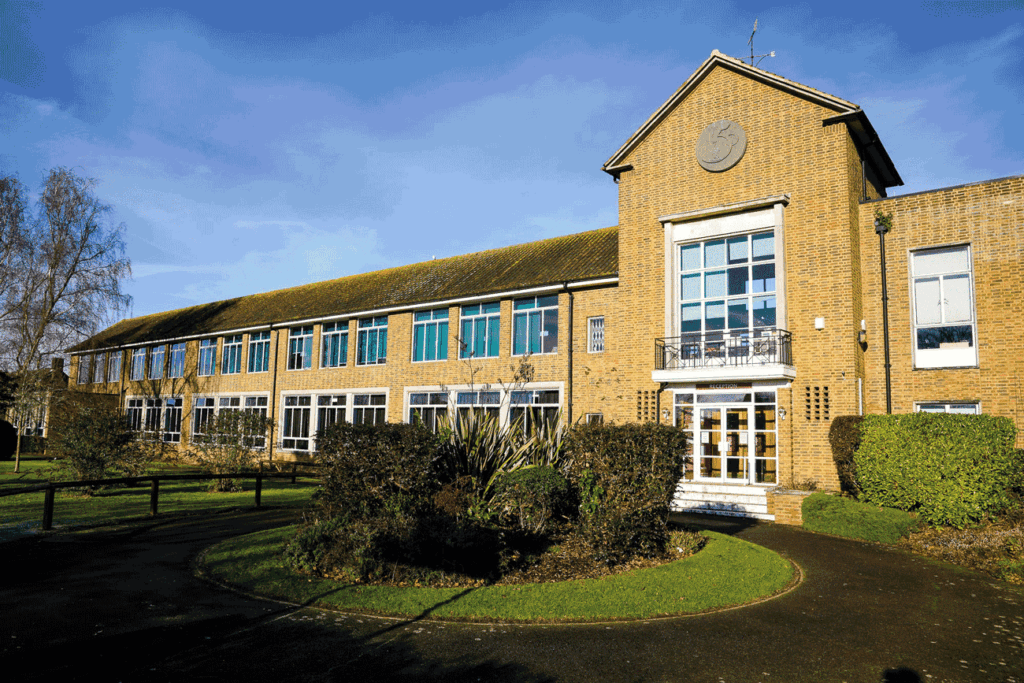
By the time I left college, two years later, I’d shot up from 5’10” to 6’3” and continued growing into my early 20s. Rugby took over from mountain biking as my main hobby and my dad used to joke that there must be a seat at Royal Surrey Hospital with my name on it, as I was always picking up injuries. Luckily, no broken bones, but I did lose two teeth a few weeks before my wedding, which wasn’t ideal!
Throughout my teens I’d always been into weight training.
First at home with some dumbbells my brother had given me and later in the gym with my best friend Stef. We’d train together and I recall my brother – who has also trained for many years – saying “If you’re not going to train properly, then there’s no point training at all!” He’s right, the technique is important and those words have stuck with me ever since. I trained where I could, between my rugby commitments, work and family life but I had never taken it too seriously.
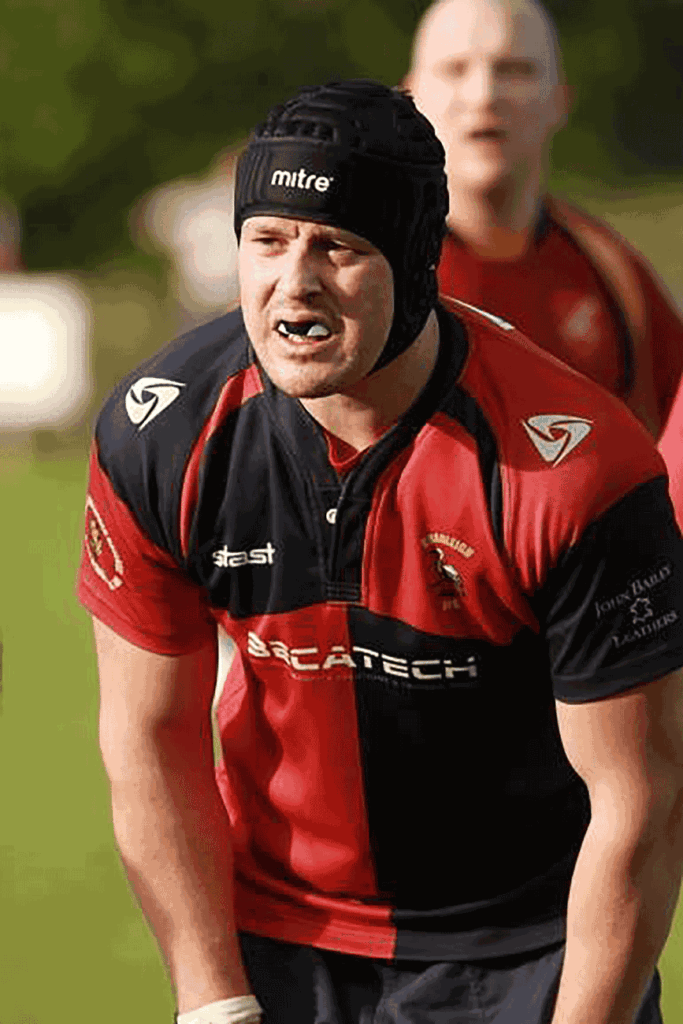
Around six years ago, having stopped playing rugby regularly, I decided to put all my efforts into the gym. My first goal was to see how big I could get, opting for a bodybuilding programme and training five days a week. It was a fascinating process, to see how I could push my body into new places, but I was training without a particular goal and the lack of a specific focus meant it became a bit of a chore. I was just over 130kg at this point and my strength was very good, but the lack of direction led me seek other options. I looked into powerlifting and putting my strength to the test, though I had no idea what I was doing!
Initially, I tested the water by volunteering at a regional competition. To my surprise everyone was welcoming and I loved the camaraderie and meeting the people involved. I walked into this old school gym, with music pumping and people everywhere – guys, girls, young and old! At first, I thought ‘this isn’t for me’ but almost immediately a guy came to talk to me. This incredibly humble, friendly chap turned out to be one of best powerlifters in Britain, in fact in Europe, and his encouragement made me decide to enter an upcoming competition.
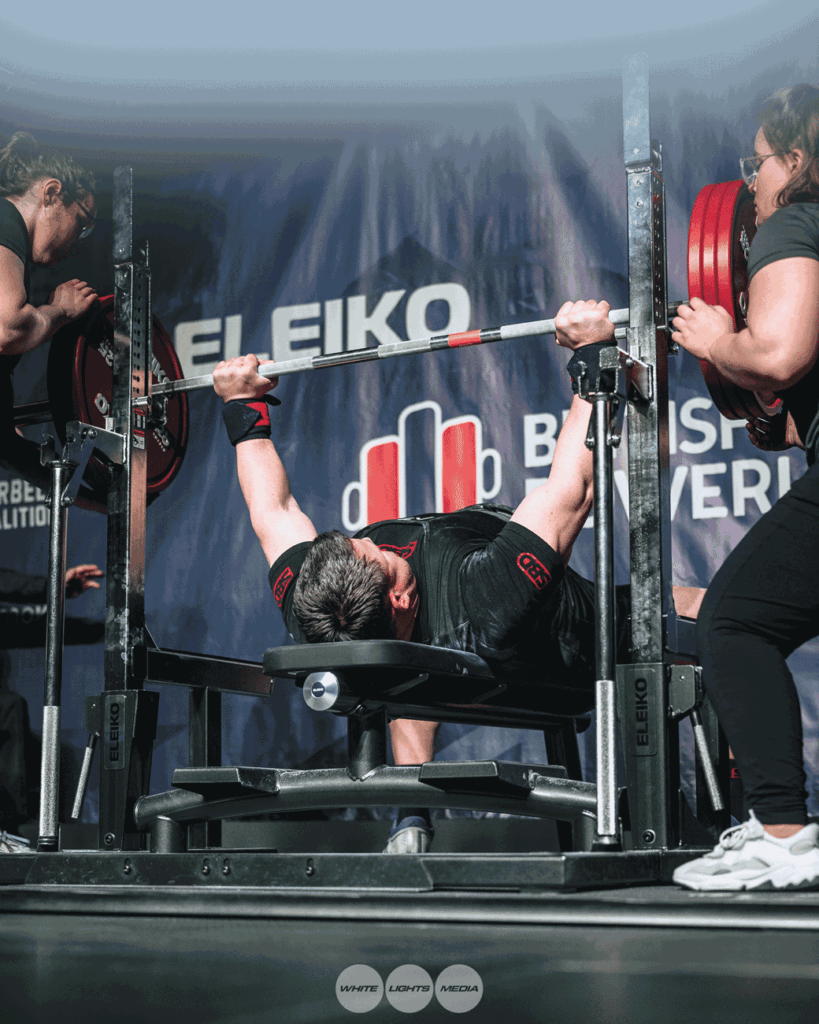
I also met Kieron Price that day, a powerlifter and volunteer. We got chatting and just before I left in the afternoon he offered to stay in touch. During a conversation on Instagram, he offered to write a programme to get me into the sport, as he thought I had a good chance of doing well if I decided to compete. He did this for free (powerlifting coaches can charge upwards of £100 a month), and because he loves the sport and genuinely wanted to help me out. Kieron is 20 years younger than me but his knowledge and passion is incredible. We’ve worked together ever since and I’m immensely grateful for what he does. He pushes me and now writes bespoke programmes that are incredibly in-depth, as well as teaching me other areas of the sport such as diet, fatigue and mindset.
Powerlifting is a fascinating sport based around three lifts – squat, bench press and deadlift, competing within an age category and bodyweight class. There’s 14-year-old lifters and 80 year olds who enjoy the sport too. From a 43kg female class up to 120kg+ men, where some of the lifters are pushing bodyweights of 200kg! It’s inclusive and open to all ages and skill levels and you can compete regionally, nationally and internationally. There are a few federations and I lift under the International Powerlifting Federation (IPF) which is largest worldwide.
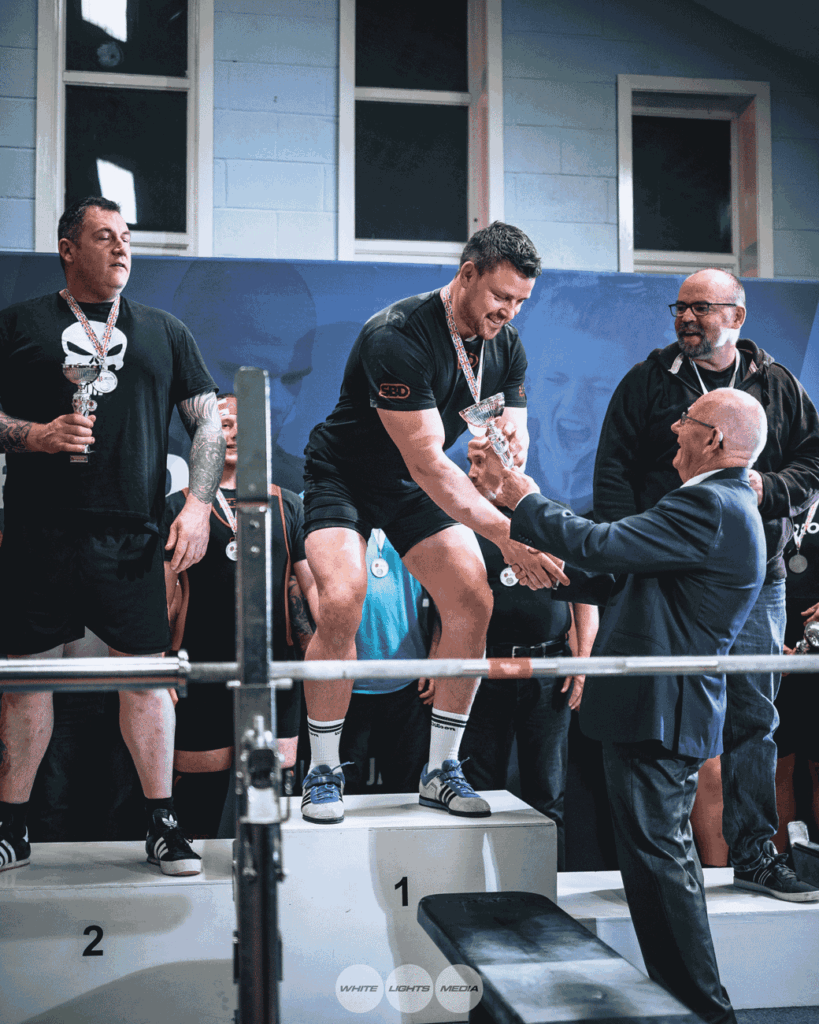
Kieron and I worked together for a few months before we decided to enter my first competition, a casual event for beginners. It went well, and I came second out of 20 lifters. So we decided to enter a regional competition, lifting under the Southeast region (Britain is divided up into separate divisions, much like counties). I would be in the Master’s 1 (aged 39-49) and in the 120kg weight class. This second competition, in Kent, wasn’t quite so good. I had struggled with the intensity of training for three big lifts, as heading towards the age of 40, and with 20 years of rugby behind me, my ankles and back weren’t so strong. My squat was 215kg and my deadlift 220kg, which although decent wouldn’t be competitive enough in my age and weight class. So I decided to focus on my best lift, the bench press, and we adjusted training purely around this. Although my first competition wasn’t as good as we’d hoped, the good news was I had reached the required qualification total of 150kg and was now heading for my first National competition. The work began in September 2022 and we knuckled down to some serious training, ready for the 2023 British Championships in Newcastle.
Training was intense as my body adjusted to all the new lifts and the increase in the overall weight I was starting to lift. At this point I also looked into my diet and built a plan around my nutrition. I didn’t want to embarrass myself on a bigger stage with competitors who knew what they were doing, that’s for sure!
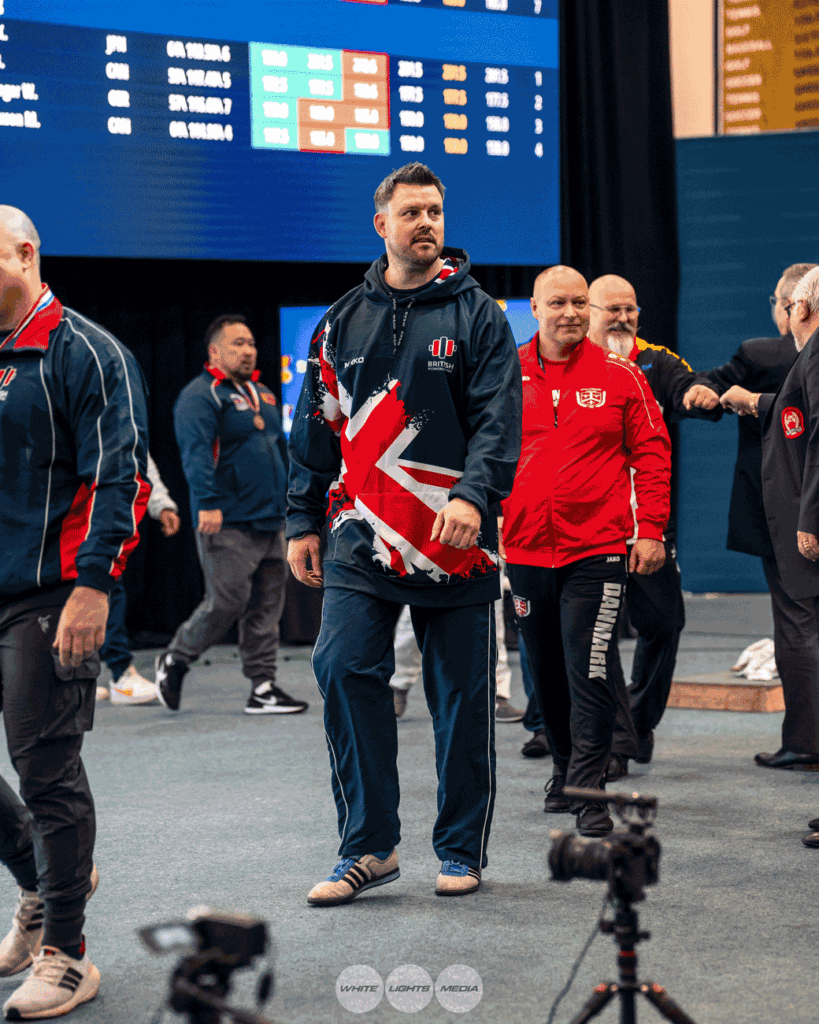
In terms of diet and nutrition, I’m not as strict as I could be. I eat a set amount of food each day to effectively fuel my training, but I don’t calorie count. I used to when I was bodybuilding, with a goal of around 4,500 calories a day, but now I’ve learnt roughly what amount of protein, carbs, fat and fibre I need to fuel my training. Essentially it’s the protein and carbs that make the difference!
2023, as it turned out, was a great year. I not only made it to my first National competition, but also won, being crowned British Champion with a final lift of 177.5kg. The feeling was unreal and the months of hard work paid off. First or second place at Nationals makes you eligible for the International team and I was subsequently selected to represent Great Britain in the World Championships, which would take place in South Africa a few months later.

My first World Championships was an incredible experience. Training went up another level and we worked hard to improve for the world stage. I would be competing alongside and against the best powerlifters on the planet – no pressure! I lifted 182.5kg and came 10th out of 11 lifters in my class. I loved every minute of being part of an incredible British team, and it was like nothing else I had experienced before. It was a real honour to represent my country.
I came back from South Africa and training started again for the English Championships, only 12 weeks away. My son and I travelled to the Midlands and drove back down the motorway that evening with a flurry of medals and the title of English Champion. Not a bad day’s work and a great experience to share with my son.
In September 2023 the cycle began again, qualifying at regional level to head to Nationals. Although I scored a personal best of 192.5kg at the British Championships, second place would have to do, along with an invitation to represent Great Britain, this time in Texas. This would be the first televised Powerlifting competition in America on CBS Sports. It was an incredible experience, although I didn’t get the result I wanted. At this level, it’s small margins and my training in the run up to the competition didn’t quite go to plan unfortunately.
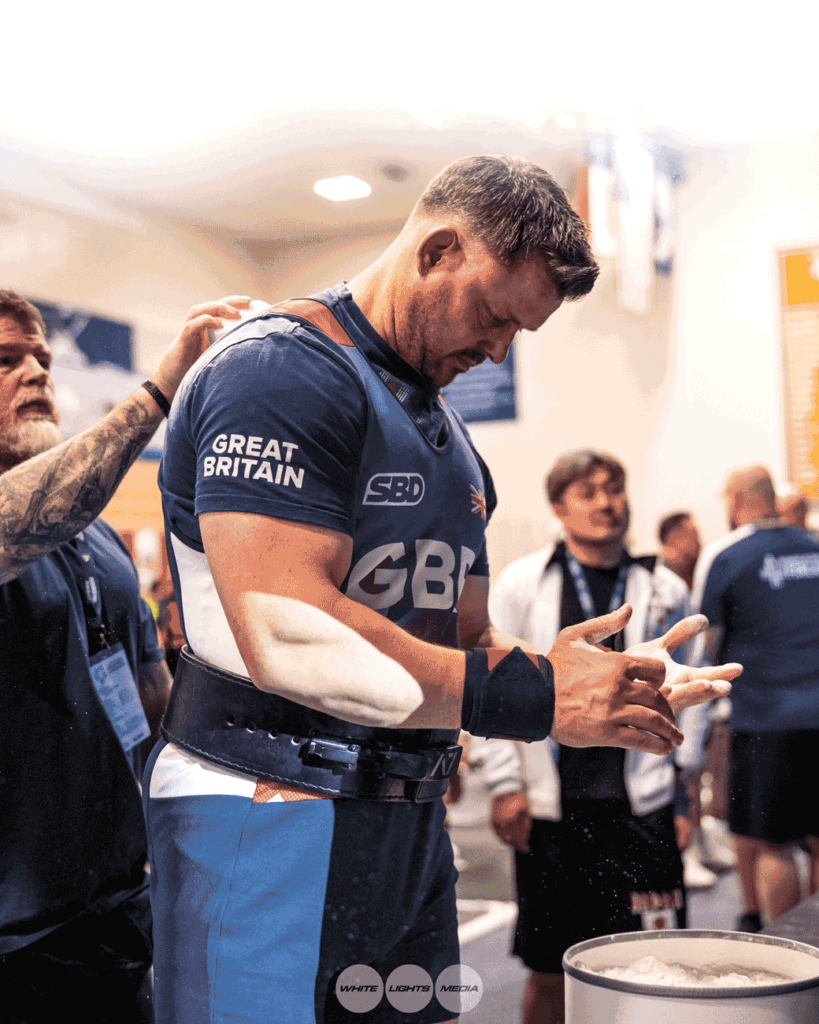
Training for 2025 is going well, working towards a goal of lifting 200kg to regain the British title, which is held in Cardiff in February 2025. I also hope to compete in the 2025 World Championships in Sweden and the European Championships in Bulgaria, and if time permits, the English Championships. It’s going to be a busy year!
Powerlifting follows set rules and I appreciate the structure it brings. It’s a sport that values discipline and I believe that embracing the formality and structure is key to success. The sport also provides a platform for people to build confidence as they see their own progress reflected in the weight they lift. It’s best to operate below your maximum because lifting heavy weights continually can lay you open to injury. It can also affect your immune system, especially in the winter.
My dad once said that as a policeman he had the mindset of “It’s either going to be me or them and it’s not going to be me!” and that approach was helpful in rugby as it is now in my approach to powerlifting. I have to be single minded as it can be a lonely sport mentally when training regularly. No one else can do it for you and the results will only come from the effort you put in.
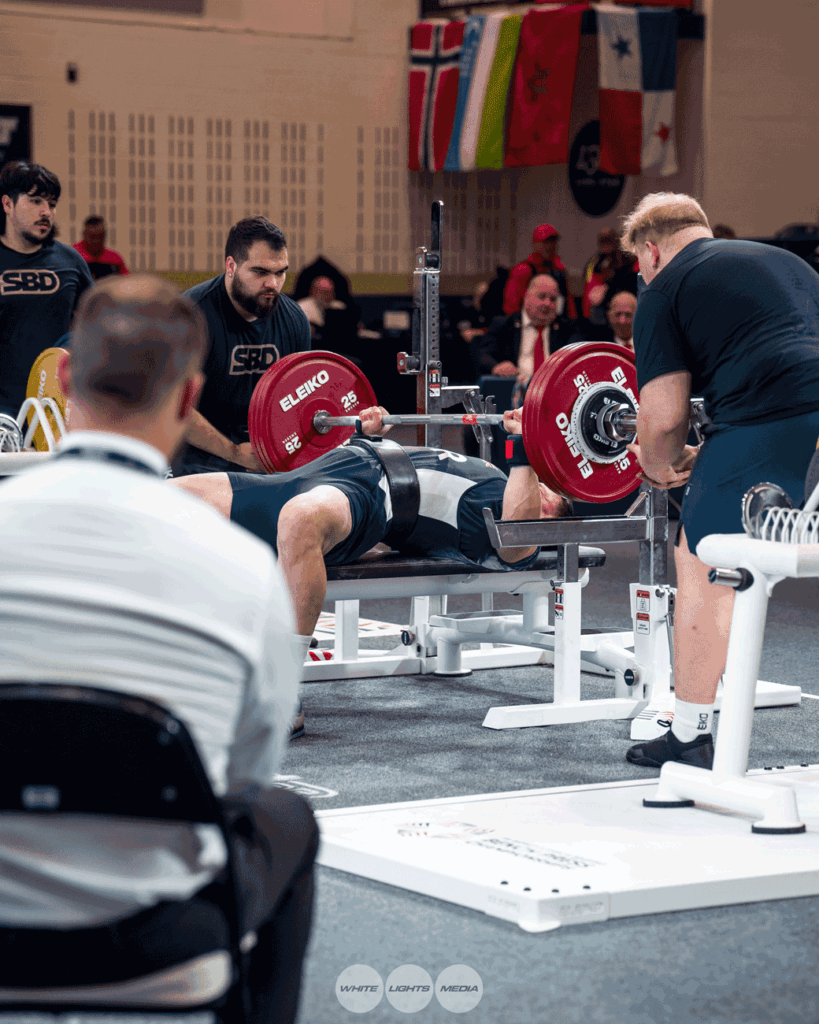
I train at Cranleigh Leisure Centre and then at another gym in Hampshire in the run up to a competition. There’s probably many people in Cranleigh who have the ability to do powerlifting but may be held back by self-doubt. Powerlifting is for all ages and abilities. I met a lifter in South Africa, Daniel McGauley, who has Down’s syndrome. He’s an amazing, inspirational young man and has won multiple world championships. His mum, who travels the world with him, also competes aged 76! Powerlifting isn’t just for big people, some of the best powerlifters are the smallest, as they can move weight efficiently. Powerlifting is much like rugby, where you have small players, huge players and everything in-between!
At the gym, I often see newcomers struggling with their confidence, unsure if they’re strong enough or if they can commit. I encourage them by reminding them that strength comes with practice. Powerlifting provides structure and discipline along with a goal and objectives. I’ve recently started coaching my brother-in-law, who competed for the first time this year. Afterwards I told him, “You’re a powerlifter now. No one can take that away from you.” It’s a sense of identity and you become part of a network of likeminded people.
Though my children are growing up, as a father of four and running a business, there’s still great demand on my time. Powerlifting is my main hobby, where I can let off steam. It’s become a family joke that the distraction I was seeking has become a passion as I compete at the highest level. But it doesn’t have to be so competitive. It can just be a way to engage with different people and meet new friends.

I have no sponsorship, though last year I was lucky enough to have a drinks brand supply me with some of their products. Apart from that, it’s 100% self-funded – entry and anti-doping fees (the IPF is a drug tested federation) flights, accommodation, food, everything. It’s certainly not a cheap sport.
It’s difficult to gain sponsorship at any level, especially internationally because I must wear the official Great Britain kit, but I constantly seek sponsorship and partnerships. I know those who are at the very top level get sponsorship from clothing or nutrition companies, but it’s quite rare. Although I’m not the best in the world, I can still carry a brand to the world stage, so I’m open to any form of sponsorship!
If you’re considering powerlifting, or you have been going to the gym for a while and wonder what’s next, then I thoroughly recommend powerlifting. You can find out more by visiting the British Powerlifting website or by finding their page on Facebook, where there’s plenty of advice and help available.
For more information on Ryan visit:
www.mad-keen.co.uk
@ryan_lift
or check out your local Cranleigh gym at
www.everyoneactive.com/centre/cranleigh-leisure-centre
Tel: 01483 274 400





